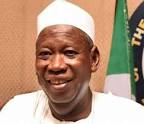A group of elders and politicians from Kano State has asked a court to compel the Senate President, Ahmed Lawan and Speaker of the House of Representatives, Olufemi Gbajabiamila to hasten the exit of the South-East from Nigeria before concluding ongoing amendment to the country’s constitution.
The request formed one of the three prayers sought in a suit marked: FHC/ABJ/CS/538/2021 instituted at the Federal High Court in Abuja.
The politicians include Nastura Ashir Shariff, Balarabe Rufa’I, Abdul-Aziz Sulaiman and Aminu Adam.
They averred in a supporting affidavit that their action was informed by the need to stem the tide of violence and destruction allegedly occasioned by the agitation for secession, championed by the Nnamdi Kanu-led Indigenous People of Biafra (IPOB).
Listed as defendants in the suit are the Attorney General of the Federation (AGF) (Abubakar Malami), the Senate President (Lawan), the Speaker of the House of Representatives (Gbajabiamila) and the National Assembly.
The plaintiffs prayed the court for the following reliefs: “A declaration that, by the combined effect of the provisions of Section 4 of the 1999 Constitution of the Federal Republic of Nigeria (as amended), and Articles 1, 2, and 20(1) of the African Charter on Human and Peoples’ Rights (Ratification and Enforcement) Act 2004, the 4th defendant (the National Assembly) is empowered to set in motion a framework for a referendum to allow the South-eastern region of the Federal Republic of Nigeria to decide on their bid for self-determination.
“A declaration that in view of the provisions of Articles 1, 2, 4, 14 and 20(1) of the African Charter on Human and Peoples’ Rights (Ratification and Enforcement) Act 2004, the 2nd and 3rd defendants (the Senate President and House of Reps Speaker) have the power to call for a joint session of both Chambers of the 4th defendant to deliberate on the agitation for self-determination by the Southeastern states of the Federal Republic of Nigeria.
“An order directing the 2nd, 3rd and 4th defendants to provide a framework that will pave the way for the self-determination of the South-eastern states so as to leave the geographical entity called Nigeria before any further step is taken to further amend the Constitution of the Federal Republic of Nigeria.
“Even before the emergence of the Indigenous People of Biafra (IPOB), there was a group at the south-eastern part of Nigeria known as the Movement for the Actualization of the Sovereign State of Biafra (MASSOB) under the leadership of one, Chief Ralph Uwazuruike.
“The main objective of the group mentioned in the immediately preceding paragraph is also the creation of the Independent State of Biafra, away from the Federal Republic of Nigeria.
“Long before the emergence of the Indigenous People of Biafra (IPOB) and the Movement for the Actualization of the Sovereign State of Biafra (MASSOB), there was a move by the people of the south-eastern part of Nigeria formerly Eastern Region led by the late Col. Odumegwu Ojukwu to secede from the Federal Republic of Nigeria.
“The secession attempt by the people of the then Eastern Region under the leadership of the late Col. Ojukwu was directly responsible for the first Nigerian Civil War between 1967 and 1970. The said civil war had claimed many innocent lives from both sides of the divide as well as destruction of properties worth billions of naira which was detrimental to the growth and development of the Federal Republic of Nigeria.
“The lessons of the civil war have faded in the minds of many Nigerians and a repeat of the carnage of the civil war is not necessary, going forward. The IPOB’s agitation for self-determination has turned violent against both the people of the south-east who are against their agitations and other Nigerians carrying out their lawful businesses within the south-eastern states of the Federal Republic of Nigeria.
“The IPOB through its militant arm — Eastern Security Network (ESN) — is responsible for the killings, expulsions and destruction of properties of other Nigerians not belonging to the Igbo tribe. Resolving, with finality, the existential question of self-determination of any part of Nigeria is now more urgent, imperative and prevails over and above the issue of amending the Constitution of the Federal Republic of Nigeria.
“The Constitution of the Federal Republic of Nigeria can be further amended at any time after the question of self-determination must have been resolved by Nigerians.”
The case has been assigned to Justice Inyang Eden Ekwo and has been fixed for November 1, 2021 for hearing.






Leave a Reply